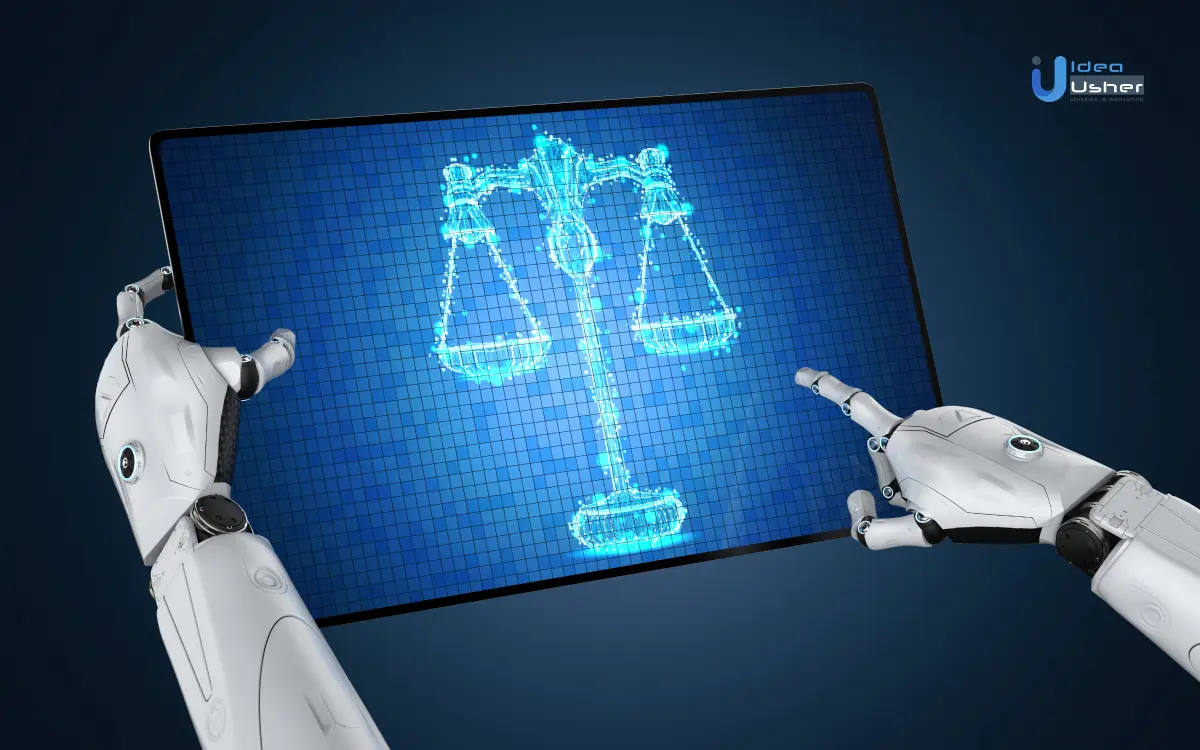The legal industry has been one of the slowest adopters of new technology. However, with the introduction of artificial intelligence (AI), the legal industry is undergoing a rapid transformation. AI is changing the way legal professionals work and interact with their clients. In this article, we will explore how AI is revolutionizing the legal industry.
What is Artificial Intelligence?
At its core, AI teaches machines to perform tasks that would otherwise require human intelligence. A typical example is a smartphone that can remind you to call a friend at a specific time every week. This is an example of how AI can mimic human intelligence and automate tasks that we would typically perform manually.
However, AI is much more complex than simple task automation. AI uses complex algorithms, machine learning, and deep learning techniques to create intelligent machines that can perform increasingly complex tasks. AI is also used in many applications, from self-driving cars to medical diagnosis and treatment.
Machine Learning vs. AI
While AI and machine learning are often interchangeable, they are actually different concepts. Machine learning is a subset of AI and refers to training machines to learn from data input. Essentially, machines are taught to recognize patterns in data and use those patterns to draw conclusions and make predictions.
For example, Imagine you have a habit of walking every day at 7:00 a.m. in your local park. You never set a reminder for this daily activity, but a machine-learning fitness app on your smartphone would recognize this pattern. If you don’t go for a walk on a particular day, the app could automatically send you a reminder to go for a walk, based on the pattern it has learned. This is an example of how machine learning can be used to automate and improve our daily habits and routines.
How Lawyers Can Use AI to Improve Their Law Firms
Artificial intelligence (AI) is revolutionizing the legal industry by providing lawyers with powerful tools to perform their jobs better. AI is not always visible in law firms, but it plays a crucial role in helping legal professionals put their clients first. In this article, we will explore the ways lawyers can use AI to improve their law firms and better serve their clients.
E-Discovery
E-discovery is the most common form of AI used in law firms. This process involves scanning electronic information to obtain non-privileged information relevant to a case or claim. With e-discovery software, lawyers can scan documents using search terms or specific parameters, such as dates or geographic location, to get almost instant responses. This significantly speeds up the process of discovering relevant information, allowing lawyers to spend more time on other aspects of their work.
Legal Research
AI-powered legal research software lets legal professionals quickly scan and search large databases of regulations, statutes, practice areas, jurisdictions, case laws, and more. This allows lawyers to gather data and understand precedents more efficiently, saving time and money for clients. Tools that integrate with practice management software, such as Casetext and Fastcase, make it easy for users to conduct and attach research directly to relevant case details.
Document Management and Automation
Electronic document storage has become a popular option for law firms, but it presents its own set of challenges. AI-driven document management software helps store and organize legal files, including contracts, case files, notes, emails, and more. This method of storing and organizing digital files, along with full-text search, makes documents much easier to find. Document management solutions also enable document ID and check-in/check-out privileges to maintain version control and security. Document automation allows law firms to create documents using intelligent templates, saving time and effort.
Due Diligence
Conducting due diligence often requires legal professionals to review a large number of documents, such as contracts. AI-based due diligence solutions can pull specific documents required for due diligence, like documents containing a specific clause. AI due diligence software can also spot variations or changes in documents quickly. Lawyers can benefit from drastically reducing the manual effort of document review.
Litigation Analysis
Lawyer AI can help with determining the viability of litigation or quantifying the value of a lawsuit by quickly reviewing precedent-setting cases. This helps lawyers draft more accurate and appropriate documents based on that data.
Benefits of AI in Law Firms
Using AI in law firms helps reduce the time spent on manual tasks, freeing up more time to devote to relationship-building and client-focused activities. Law firms can realize numerous benefits for both clients and the bottom line:
- Increased productivity: Automating routine manual tasks with AI-driven processes helps improve efficiency across the firm. This eliminates labor-intensive, time-consuming activities, whether searching for a contract, conducting due diligence, or creating an invoice.
- Improved client service: With more time available, lawyers can focus on building relationships and delivering excellent client service. This can lead to increased client satisfaction and loyalty.
- Cost savings: AI can help law firms reduce costs associated with manual labor, saving money and improving profitability.
AI on Legal Research
Legal research is a time-consuming and expensive process. However, AI is changing that by providing lawyers with access to vast amounts of data that can be analyzed quickly and accurately. AI tools like LexisNexis, Westlaw, and Casetext are being used to streamline legal research and make it more efficient. With AI, lawyers can analyze vast amounts of data, including case law, statutes, and regulations, to find the most relevant information for their cases.
Benefits
- Quick and accurate analysis
- The efficient and streamlined legal research process
AI in Contract Management
AI is also being used in contract management. AI tools like Kira Systems and LawGeex are used to analyze contracts and identify potential risks and opportunities. These tools can analyze thousands of contracts quickly and accurately, which saves time and reduces the risk of errors.
Benefits
- Quick and accurate contract analysis
- Reduction of errors
- Time-saving
AI in eDiscovery
eDiscovery is a critical aspect of litigation, and AI is revolutionizing this process. AI tools like Relativity and Everlaw are being used to analyze vast amounts of data quickly and accurately. These tools can identify relevant documents, filter out irrelevant information, and even predict the outcome of a case.
Benefits
- Quick and accurate analysis of vast amounts of data
- Identification of relevant documents
- Filtering out irrelevant information
- Prediction of case outcome
AI in Legal Writing
Legal writing is an essential skill for lawyers, and AI is being used to improve it. AI tools like Grammarly and Hemingway can analyze legal documents and provide suggestions for improvement. These tools can identify grammar and punctuation errors, suggest better word choices, and even provide suggestions for better sentence structure.
Benefits
- Improved legal writing
- Identification of grammar and punctuation errors
- The suggestion of better word choices
- The suggestion of better sentence structure
List of Top 5 AI-Powered Lawyer Tools
As the legal industry continues to evolve, lawyers are increasingly turning to artificial intelligence (AI) tools to help them practice more efficiently and provide better service to their clients. Let’s explore five key AI-driven tools that are making waves in the legal sector.
1. Blue J Legal: Providing Predictive Insights
Blue J Legal is an AI-powered platform that provides predictive legal insights. Using machine learning to analyze past cases and rulings, Blue J Legal can help lawyers predict the likely outcome of a case with a high degree of accuracy. This allows lawyers to advise their clients better and even help settle cases more quickly.
2. Smith.ai: Streamlining Call Management
Smith.ai is an outsourcing platform that uses AI to streamline call management for lawyers and law firms. By using a virtual receptionist backed by AI-driven chatbot features, Smith.ai can efficiently log and route calls to the appropriate party. Smith.ai’s chat features integrate seamlessly with Clio, a widespread practice management software used by many law firms. This allows lawyers to manage their calls and messages in one place, saving them valuable time and streamlining their workflow.
3. Gideon: Enhancing Lead Qualification
Gideon is another AI-powered chatbot tool that helps lawyers qualify leads effectively. By learning how to answer prospect questions, Gideon can often replace lengthy intake forms with simple conversations. This saves the lawyer and client time and makes the entire process more user-friendly. Gideon also integrates with Clio, making it easy to manage leads and contacts all in one place.
4. Casetext: Streamlining Legal Research
Casetext is an AI-powered legal research platform that helps lawyers find cases quickly and easily. With just one click, legal professionals can conduct searches directly within Clio and save their searches to the current matter. Casetext also analyzes cases to ensure they are relevant to the matter at hand. Casetext helps lawyers save time and be more productive by streamlining the research process.
5. Diligen: Enhancing Due Diligence
Diligen is an AI-powered tool that helps lawyers conduct due diligence by reviewing contracts for specific clauses, provisions, or changes. This tool uses machine learning to quickly output a convenient summary of crucial information. Lawyers and legal professionals can import documents directly between Diligen and Clio, making it easy to manage all their due diligence needs in one place.
Conclusion
In conclusion, the use of AI in the legal industry has the potential to revolutionize the way lawyers work and provide services to their clients. With the help of AI-powered tools such as legal research platforms, chatbots, and contract analysis tools, lawyers can work more efficiently and effectively, ultimately delivering better outcomes for their clients.
As an AI development services company, ideausher understands the challenges that lawyers face in their day-to-day work. We are committed to developing innovative solutions to help them overcome these challenges. Our team of experienced developers and data scientists can help you build custom AI solutions tailored to your specific needs, whether you’re looking to streamline your legal research process or automate your contract analysis.
By partnering with us, you can leverage the power of AI to gain a competitive edge in the legal industry and deliver exceptional value to your clients. Contact us today to learn more about our AI development services and how we can help you transform your legal practice.
Build Better Solutions With Idea Usher
Professionals
Projects
FAQ
Q: What is legal AI?
A: Legal AI refers to using artificial intelligence technology in the legal field to perform legal research, document analysis, and even decision-making.
Q: Can AI be used in law?
A: Yes, AI can be used in law. Many legal tech companies have developed AI-powered tools to help lawyers work more efficiently, such as legal research platforms, chatbots, and contract analysis tools.
Q: What is a legal startup?
A: A legal startup is a company that develops and provides legal technology products or services, typically in software or online platforms.
Q: Will AI get rid of lawyers?
A: No, AI is not expected to get rid of lawyers. Instead, it is designed to assist lawyers in their work, making them more efficient and effective. While some tasks may be automated, human lawyers must always provide legal advice and make strategic decisions.
























